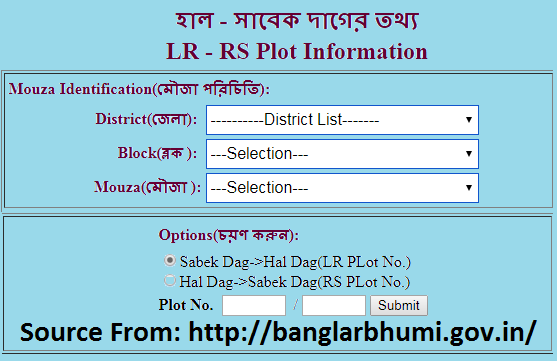Money is an important and useful tool when it comes to financial planning in India. This article offers a comprehensive overview of the wealth tax system and how to calculate the amount due. We will look at the applicable rate, the deductions available, and the process of calculation. Additionally, we will consider the consequences of not paying wealth tax. Armed with this knowledge, you’ll be able to accurately calculate your wealth tax in India.

Definition of Wealth Tax
Wealth tax is a levy on accumulated riches of individuals and organizations, to be paid yearly. As per the definition, wealth tax is charged on an individual’s or organization’s net worth, which is the total value of their assets minus liabilities.
Overview of Wealth Tax in India
In India, wealth tax is imposed on individuals and Hindu Undivided Families (HUFs) who own certain specified assets, as laid out in the wealth tax act, 1957. Wealth tax is calculated by taking into account the current market value of specified assets such as jewelry, motor vehicles, urban land, etc. The amount of wealth tax payable depends on the net wealth of the assesses and is charged at the rate of 1% of the net wealth exceeding Rs. 30 lakhs. Additionally, the Government of India has also introduced a surcharge of 1% of the wealth tax, if the net wealth exceeds Rs. 50 lakhs. Wealth tax is a significant source of revenue for the government and helps in promoting equitable distribution of wealth.
Details of Wealth Tax in India Tax
Who is Eligible to Pay Wealth Tax?
In India, Individuals, Hindu Undivided Families (HUFs) and companies are all eligible to pay wealth tax. Generally, the wealth tax is calculated on the basis of total net wealth owned by the individual or entity as on the valuation date.
What are the Assets and Liabilities Subject to Wealth Tax?
Wealth tax is calculated on total net wealth, which includes all the assets held by an individual or company such as cash, jewelry, residential and commercial properties, motor vehicles, shares, debentures, bonds, bank deposits and so on. Liabilities such as mortgages, loans, and other financial liabilities are also taken into consideration when calculating the total net wealth.
What is the Applicable Rate of Wealth Tax?
The applicable rate of wealth tax in India is 1% of the total net wealth exceeding Rs. 30 lakhs. For example, if an individual’s total net wealth is Rs. 50 lakhs, then the wealth tax payable would be 1% of Rs. 20 lakhs (Rs. 50 lakhs minus Rs. 30 lakhs), which comes to Rs. 20,000.
Step-by-Step Guide to Calculate Wealth Tax in India
Step 1: Gather Required Information: To calculate wealth tax in India, the first step is to gather the required information. This includes information about the individual’s total assets, liabilities, and income. The individual should know the market value of their assets, such as real estate, jewelry, vehicles, and other movable and immovable assets. They must also have information about liabilities, such as mortgages, home loans, and other loans. Lastly, they must have knowledge of their total income.
Step 2: Calculate Net Wealth: Once the individual is aware of the required information, they can calculate their net wealth. This is done by subtracting the total liabilities from the total assets. To get the most accurate figure, it is important to use the market value of the assets and liabilities.
Step 3: Calculate Wealth Tax: The final step is to calculate the wealth tax. This is done by multiplying the net wealth by the applicable tax rate. The applicable tax rate is determined by the Indian government and can vary from year to year. After the tax rate is determined, the individual can calculate their wealth tax by multiplying the net wealth by the applicable tax rate.
By following these three steps, an individual can easily calculate their wealth tax in India.
FAQ
What is the threshold for wealth tax in India?
The threshold for wealth tax in India is Rs. 30 lakhs. Any assets and property above this amount are eligible for taxation.
What types of assets and property are taxable under wealth tax in India?
Cash, stocks, bonds, and real estate are all taxable under wealth tax in India.
Is wealth tax the same as income tax in India?
No, wealth tax and income tax are different taxes in India. Wealth tax is imposed on the total value of an individual’s assets and property, while income tax is imposed on the income earned by an individual.
Is wealth tax applicable to all residents in India?
Yes, wealth tax is applicable to all residents in India, regardless of their nationality or citizenship.
What is the rate of Wealth Tax in India?
The rate of Wealth Tax in India is 1% on the net wealth exceeding Rs 30 lakhs.
Is wealth tax applicable to non-residents in India?
No, wealth tax is not applicable to non-residents in India.
Are there any exemptions from wealth tax in India?
Yes, certain assets and property are exempt from wealth tax in India, including agricultural land, jewelry, and bullion.
Is wealth tax applicable on inherited assets in India?
Yes, inherited assets are taxable under wealth tax in India.
Conclusion
Overall, calculating wealth tax in India is a difficult venture and it is crucial to be aware of the different tax brackets and the effect they will have on your wealth. With the right information and understanding, you can work out your wealth tax in India correctly and quickly. With expert advice, you can make the most of the various tax exclusions and deductions available to you and improve your wealth without having to pay a large tax bill.












